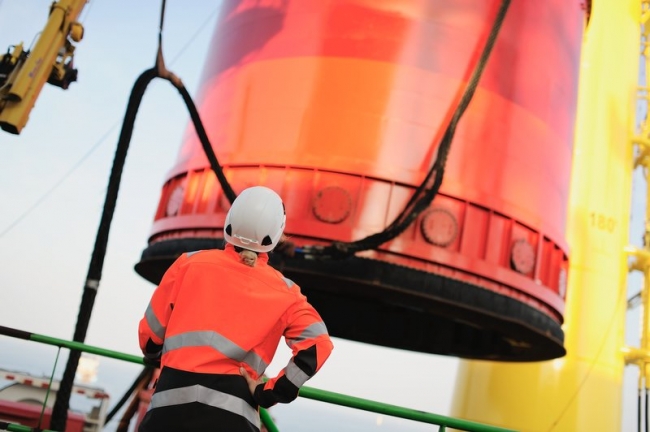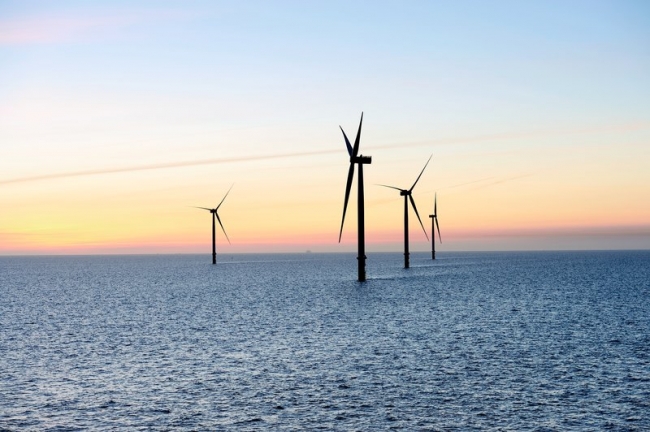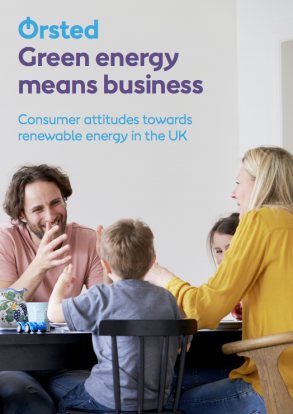5 minute read
Green means business: the bottom-line benefits of becoming environmentally conscious
The EEF’s Regional Manufacturing Outlook – published in July – highlights the growing importance of manufacturing to our UK economy. It makes for a very positive read, detailing areas of growth and improved performance across all regions. The manufacturing sector has been working hard to keep up with rapid digitisation and technological advances as well as changing customer and stakeholder expectation – and is thriving despite increased economic and regulatory pressures. However, manufacturers may meet news of growth with a measure of caution. How do we maintain this upward trend?
Continued growth in the manufacturing industry will depend on many different factors. Key among them are the availability of skilled workers and the ability to keep operating costs down. Manufacturers might be surprised to hear that better energy management – encompassing responsibly sourced energy and efficiency measures as well as CO2 reduction and sustainable practices – could help with both things. Green energy could prove a vital piece in the manufacturing puzzle and here at Ørsted, the power of green is something we truly believe in.

Green energy could prove a vital piece in the manufacturing puzzle of attracting talent & keeping operating costs down / Picture: Ørsted
The importance of brand values
Motivating young men and women to join our manufacturing workforce is a challenge facing UK businesses of all sizes, right across the sector. With an older workforce heading towards retirement and a smaller pool of applicants to choose from, competition for the top talent is getting tougher. Savvy manufacturing businesses are already looking to the long term and reshaping both their brand identity and their recruitment processes; protecting their operations by boosting their employer-appeal.
It all begins with a deeper understanding of changing public attitudes towards social and environmental responsibility. Businesses can no longer afford to be perceived as purely profit-driven. They must be able to demonstrate that they care: about society, about fair trade and about our planet. Our recent survey gave us some interesting insight into how public consciousness is shifting in favour of green. It told us that 86% of consumers believe it’s worth buying products from retailers using green energy. This is an attitude that we believe is mirrored right across the supply chain.
We hope that Ørsted provides a good example of how a genuine set of values can help to shape a successful business. It’s our ambition to help create a world that runs entirely on green energy – and this ethos informs the actions we take. This has included investing in premium-free green and developing smarter energy management services for our customers; to help them choose renewable energy, consume energy more flexibly, and rethink their own future energy strategies. Whilst your own business will have its own unique set of values, a greener path might also be the right choice for you. Could strong sustainability values shape the way the world perceives your business and help it stay commercially strong for the future?
A changing workforce
Attracting and retaining talent in 2018 means adapting to the needs, desires and belief systems of the changing workforce. People entering the workforce in 2018 are digital natives. Thanks to the internet and expanded social networks, they are likely to have a belief system informed by a broad network of peers, and will apply this system to every aspect of their lives. CSR, giving back to society, and sustainability credentials are all important to the next generation of top talent. Here in the UK, studies have shown that 82% of millennials strive to be employed by a business recognised for its ethics and it’s a pattern that is repeated across the globe. Alongside workforce diversity and inclusive policies, proving you want to make a positive difference in the wider world gives you more pull as an employer for 92% of the world’s millennials, who believe that working for a responsible company is so important that they list it amongst the criteria considered when applying for a job. These are young, politically engaged jobseekers who expect more from the organisations they work for.

Ørsted work closely with customers to create a tailored, integrated solution that’s designed around their specific business needs / Picture: Ørsted
From top talent to the bottom line
Once your business has decided to go beyond CSR and develop a broader environmental strategy, it’s time to take the first steps. Moving to renewable energy is a great place to start building sustainable practices – and is a ‘quick win’ that need not come at a premium. We absorb the additional REGO premium associated with buying renewable electricity, allowing our customers to choose renewable electricity at no additional cost making it an astute business decision from both a CSR and a budget perspective.
For those wanting to take it further and demonstrate that they are serious about helping to protect the earth, carbon reduction and energy efficiency should also be on the wish list. This is where energy as a service comes in. It’s a more collaborative approach to energy management and one that we think more suppliers should take. It can help businesses use energy more flexibly and ensure our energy infrastructure remains stable and cost effective for everyone. By handing over some or all the responsibility for your energy management to their supplier, manufacturers can ensure that greener practices and a more sustainable approach also make a real difference to business resilience and budget.
Every provider will take a slightly different approach to energy as a service. We work closely with our customers to create a tailored, integrated solution that’s designed around their specific business needs. This could be a combination of energy efficiency measures and sustainable energy sourcing, or it might also incorporate flexibility, optimisation and embedded generation. The overarching aim will be to get maximum value from energy assets, identifying revenue creation opportunities wherever possible.
For manufacturers looking to build on steady growth patterns, a fresh look at energy management could provide a double opportunity, without the need for upfront investment. The cost savings made through energy efficiency and site optimisation could even provide the funding needed to develop the new wave of talent attracted by a solid set of organisational values. Green, it seems, really does mean business.

